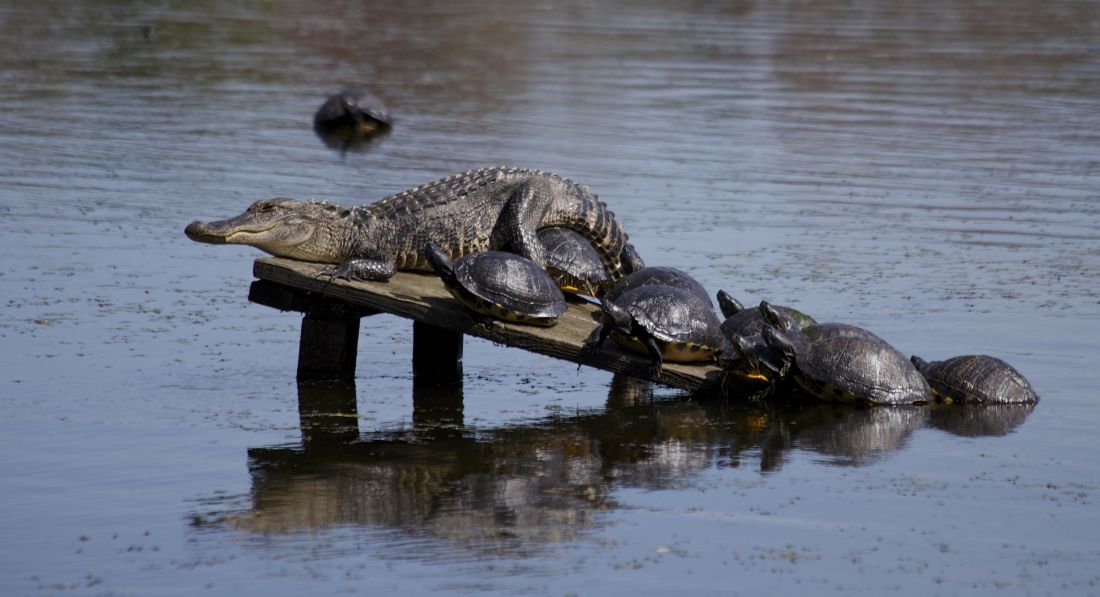I write to dispel a rampant rumor that Lake Powhatan is teeming with alligators. Just not so. It is similarly untrue that the giant Burmese pythons now cluttering swamps and highways further south are driving alligators to higher ground.
And to set the whole record straight, it never was alligators (plural) but rather alligator, the one shown above, that was said to have taken up residence in the waters of Western North Carolina. All this was based on an innocuous Facebook comment by the alligator to a photo of Lake Powhatan, to wit: “It looks quite nice. And might there be turtles?” This is how things get started; yet another unfortunate instance of social media run amuk.
Everything’s become public; you share something with one person and suddenly you’re sharing it with the world. And if one person in that world misunderstands, misinformation moves at warp speed through the entire universe. Sadly, we engage in all this chitchat to the detriment of action; and it is action that makes the world go round. It’s what led to the larger than life swagger that marks our proud national history.
When George Washington yearned for a little attention, he didn’t write someone a note, he went out and chopped down a cherry tree. When he wanted to stand out in a crowd, he didn’t get all clever with words, he deftly drew a silver dollar from his waistcoat pocket and winged it across the Potomac.
Pure mythology you say? Perhaps. But if you dig just a little deeper into our revolutionary past, you’ll come to Paul Revere, and there’s certainly no argument about what he did. So the question is: how famous would Paul Revere be today had he just gone to his Twitter account and posted a 1 or a 2 ? Not very, is my bet.





There is lots of argument about Paul Revere. ” the poem depicts the lantern signal in the Old North Church as meant for Revere, but actually the signal was from Revere. The historical Paul Revere did not receive the lantern signal, but actually was the one who ordered it to be set up. The poem also depicts Revere rowing himself across the Charles River when, in reality, he was rowed over by others. He also did not reach Concord that night.[15] Another inaccuracy is a general lengthening of the time frame of the night’s events.”
“The majority of criticism, however, notes that Longfellow gave sole credit to Revere for the collective achievements of three riders (as well as the other riders whose names do not survive to history). In fact, Revere and William Dawes rode from Boston to Lexington to warn John Hancock and Samuel Adams that British soldiers were marching from Boston to Lexington to arrest Hancock and Adams and seize the weapons stores in Concord. Revere and Dawes then rode toward Concord, where the militia’s arsenal was hidden. They were joined by Samuel Prescott, a doctor who happened to be in Lexington. Revere, Dawes, and Prescott were stopped by British troops in Lincoln on the road to nearby Concord. Prescott and Dawes escaped, but Revere was detained and questioned and then escorted at gunpoint by three British officers back to Lexington.[16] Of the three riders, only Prescott arrived at Concord in time to warn the militia there.”
Thank you, Jackson. The midnight adventure background is much appreciated. As is the fact that you’re not taking me to task for so merrily making what I will of our shared history.